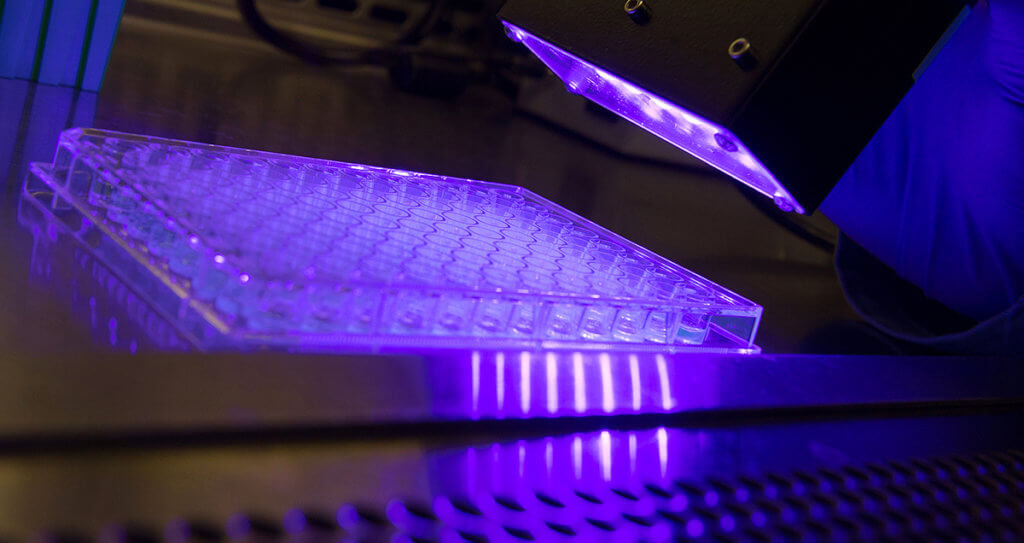
Dr. Mohamed Seleem, professor of microbiology in Purdue Veterinary Medicine’s Department of Comparative Pathobiology, is part of a research team that is testing whether a light-active version of heme, the molecule responsible for transporting oxygen in blood circulation, may help people infected with MRSA. The World Health Organization (WHO) identifies methicillin-resistant Staphylococcus aureus, or MRSA, as one of about a dozen antibiotic “superbugs” that pose an enormous threat to human health.
The research was published recently in the American Chemical Society journal ACS Infectious Diseases. The discovery aligns with Purdue’s Giant Leaps celebration, recognizing the University’s global advancements made in health, longevity, and quality of life as part of Purdue’s 150th anniversary. This is one of the four themes of the yearlong celebration’s Ideas Festival, designed to showcase Purdue as an intellectual center solving real-world issues.
“MRSA infections can cause severe problems for patients recovering from surgery,” said Dr. Alexander Wei, a professor of chemistry in the College of Science who is leading the research team. “The challenge that we face is that MRSA responds poorly to multiple antibiotics. Antimicrobial photodynamic therapy offers a promising alternative for combating MRSA in infected wounds.”
WHO has listed MRSA as one of six ‘high priority’ pathogens with an imminent threat to public health. The Centers for Disease Control and Prevention reports 80,461 people in the United States suffer severe MRSA infections a year and 11,285 die.
Photodynamic therapy, or PDT, involves a compound known as a photosensitizer, which can be activated by visible light to kill diseased cells or bacteria. PDT is a clinically proven method for fighting cancer but has not yet been developed for treating MRSA infections.
The photosensitizer developed at Purdue is called Ga-PpIX, and is an analog of heme. Ana Morales-de-Echegaray, the lead graduate research assistant on the project at the time, discovered that Ga-PpIX could be gobbled up by MRSA strains within seconds, leading to their rapid inactivation using a simple light-emitting diode (LED) array that is safe to use on human skin.
“Our discovery is part of a convergence on campus to develop drugs and get them to people in need as quickly as possible,” Dr. Wei said. Dr. Wei and Dr. Seleem are collaborating as they work closely with the Purdue Institute of Inflammation, Immunology, and Infectious Disease and the Purdue Institute for Drug Discovery to determine if this kind of treatment could work for animals and with other types of skin infection.
The technology is patented through the Purdue Office of Technology Commercialization, and the researchers are looking for partners to continue developing practical applications for the discovery. Click here to view a complete news release.
